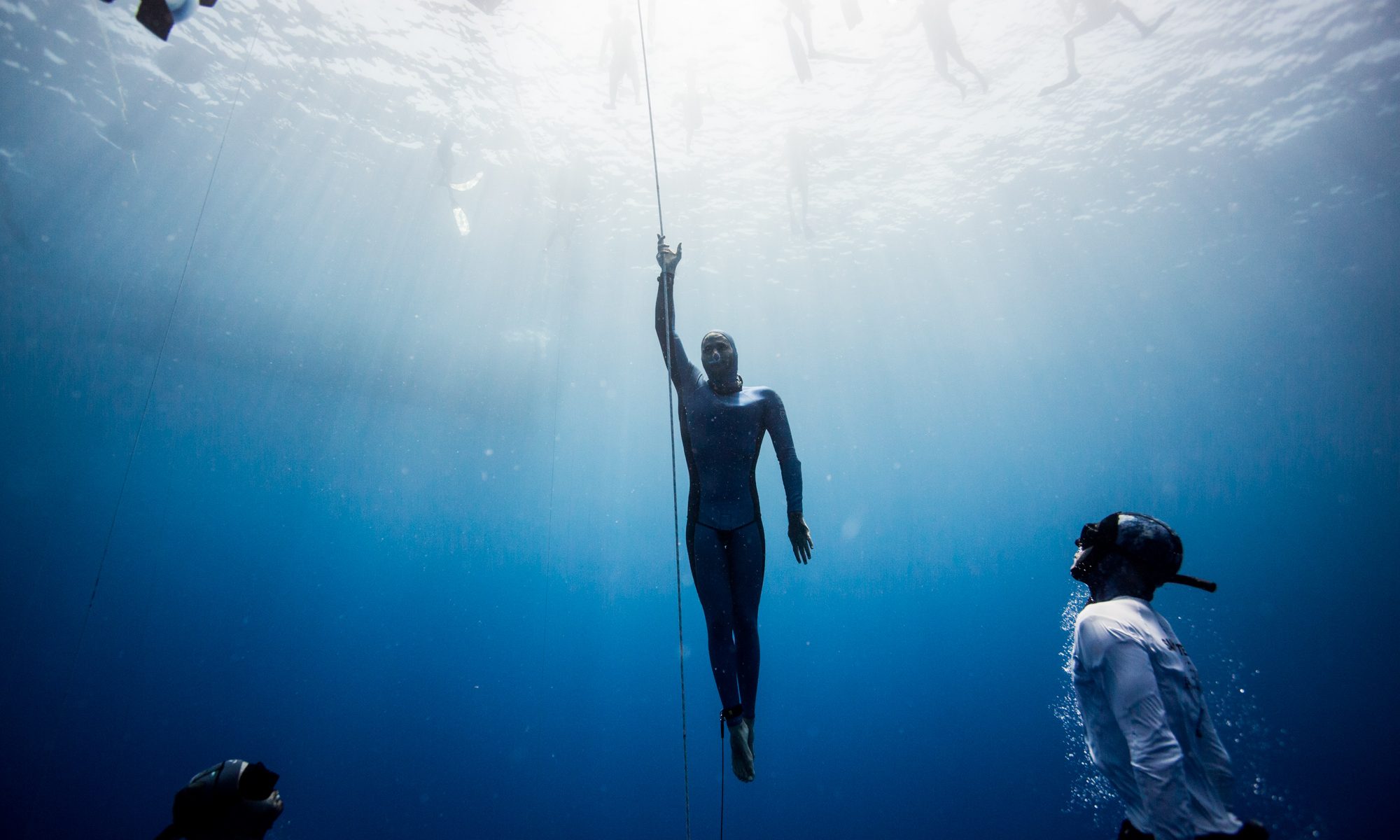
24 Oct Freediving or Scuba Diving?
Scuba Diving VS Freediving
I love both Scuba and Freediving, neither is better and they both have their place. Scuba diving and freediving are completely different activities. Each with their own limitations and benefits. They both take place in the water but trying to compare them is like saying football and cricket are the same because they both take place on a grass field. I’ll be referring to both freeediving and scuba in the context of exploration and fun diving because many people also freedive as a sport. So let’s compare these two activities over a few points.
What is better? Freediving or Scuba diving?
Keen to watch Scuba Diving VS Freediving rather than reading on? Otherwise, scroll down for more text.
- Observation
There are so many places around the world where it’s just better to scuba dive…very simply because you get much more time underwater, especially on the bottom and you can take your time, observe much more. Scuba diving is so much more practical than freediving if your goal is to take in the environment or reef around you. The downside though is that on scuba you’re slow in the water so if there’s something moving around quickly or passing you by you wont be able to keep up.
If a diver is freediving then they’re wearing less gear and usually with long fins which makes them so much faster and more agile in the water. A freediver can also cover more ground because they can swim around on the surface and dive down to their points of interest so the dive site that they’re exploring tends to be much bigger.
2. Interaction
This is where if a diver chooses to freedive they will usually get much more out of their dive than if they did it on scuba. There is nothing in the water that makes noise and bubbles like a diver on scuba and all the aquatic life know it. When freediving animals aren’t so skittish or afraid as when you’re on scuba. They let you get closer to them they also come closer to you. You become just a big fish in the ocean and often just a source of curiosity. But once again you are always limited in the time you can stay down there interacting.
This is especially true when it comes to diving with mammals in the ocean. Whales, dolphins, sea lions are all so much more playful and in the case of sea lions. Blowing bubbles is a sign of anger or aggression so that stream of bubbles coming out of the regulator doesn’t do much to keep the sea lions calm or happy.
Freediving though isn’t exclusively best for interacting with the animals in the aquatic world. For example when I wanted to dive with Thresher Sharks in Malapascua in the Phillipines it made so much more sense to do it on scuba. Early in the morning the deep water sharks swim over the cleaning station and if I were swimming up and down all the time I would scared the timid sharks away.
3. Education
The way a person learns to freedive and scuba dive are also different. Scuba diving is learnt primarily by developing knowledge and skills. Freediving is practically the same except students develop knowledge, skills and ability. Their bodies ability and limits are extended as they train and adapt their body to freediving. Now I know that the body adapts to elements of scuba diving as well but I just don’t feel like it’s quite the same and that experience is what makes a scuba diver more and more capable, able to handle more advanced dives more so that their bodies ability.
Before I go on I want to just dispel a few myths about scuba diving and freediving.
MYTHS
1. If you’re a scuba diver, taking a freediving course will not improve your air consumption on scuba. The breathing techniques that are taught on any level of freediving course do not transfer directly over to scuba and learning how to hold your breath longer will not reduce your need to breathe down there. Learning to breathe for freediving can play a role in developing more control of your breathing for scuba but I think a much better method would simply be to swim laps in a pool. You learn to control your breathing over a long period of time while exercising. Makes much more sense! OR just scuba dive more because the more comfortable you are when you dive the slower and shallower your breathing will be.
2. Just because you can freedive does not mean you can scuba dive and just because you can scuba dive does not mean you can freedive. They are 100% completely non transferable skills! Non transferable skills. Even equalising is completely different and I personally find that I have the most equalisation issues on my freediving courses with the students who have done a lot of freediving. And i’m sure scuba instructors have a hard time teaching freedivers.
3. You don’t have to be super fit or young to learn how to freedive. The first man to dive deeper than 100m was 65 years old when he did it! Both of these activities can be done by people with a range of fitness levels and the fitness level required to scuba dive is the same as is required to freedive.
So if you are a scuba diver take a freediving course and if you are a freediver take a scuba diving course. You’re honestly missing our if you don’t. Both are different ways to interact with the underwater world and we should never see one as better or worse. They’re different activities for different situations.
Related Tag: Freediving Courses in Sydney

